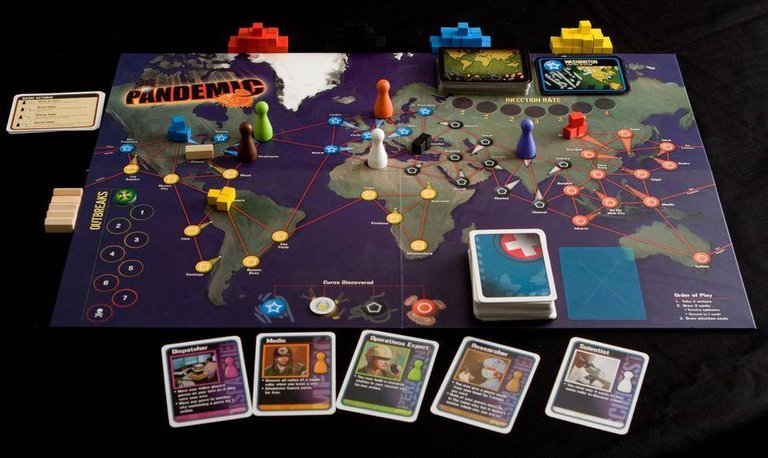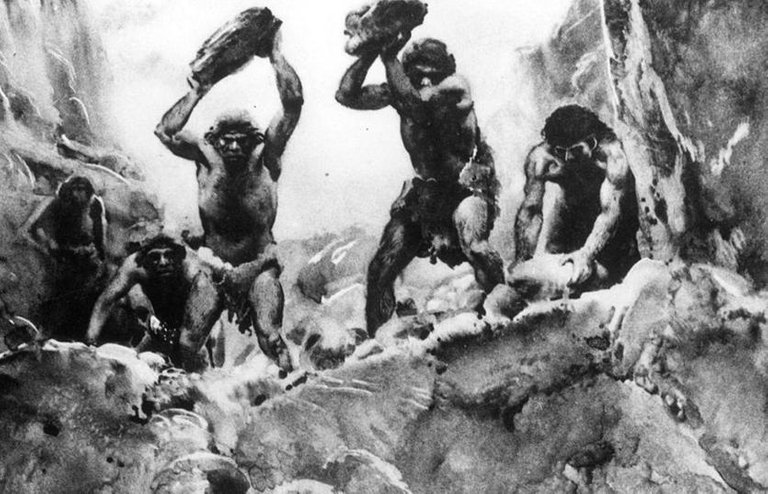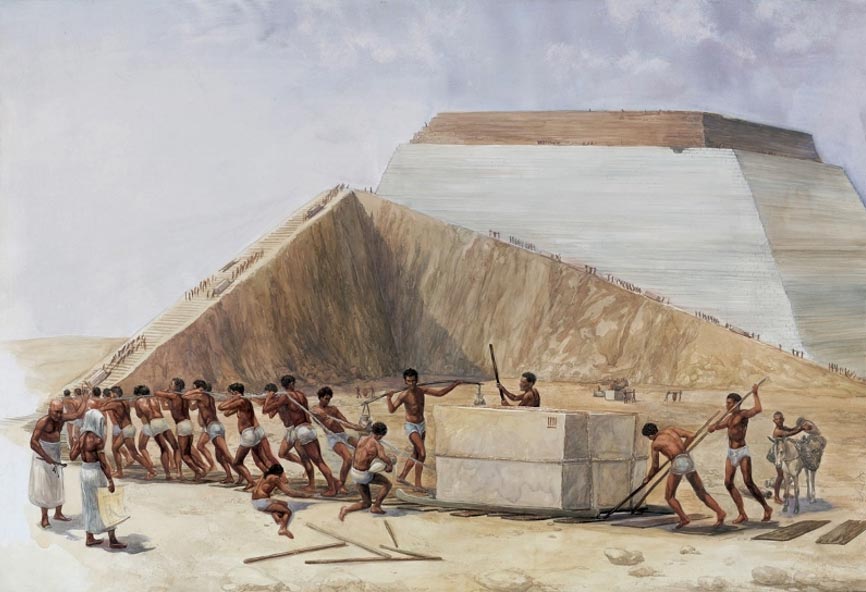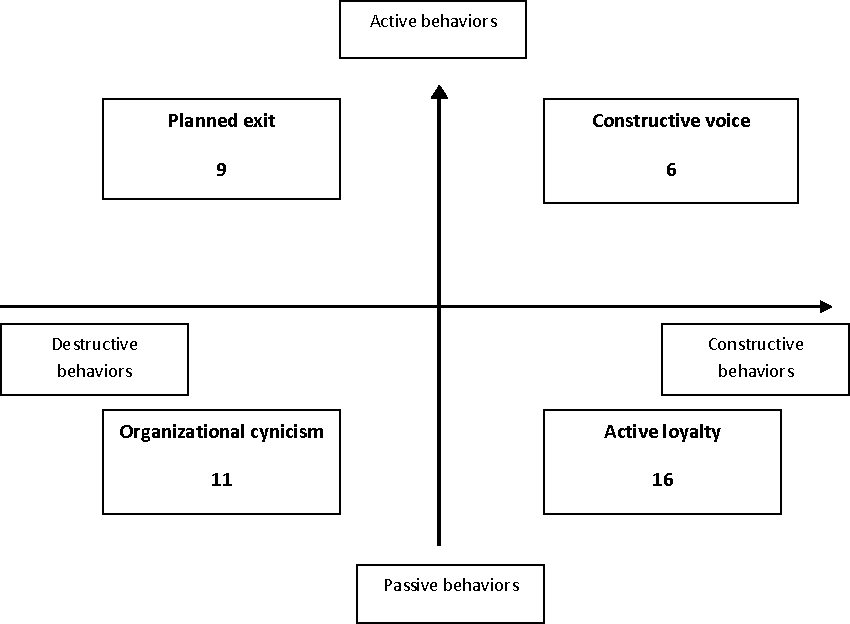In some of my previous posts I have shed light on important blockchain capabilities:
- transparency breaks information assymetry, easing fair-price discovery while
- built-in "ledger" functionality simplifies calculating the Shapley value. (fairness in sharing the fruit of collaboration)
This allows blockchain systems to transform human interactions by facilitating new "cooperative games" which come to complement existing "competitive games".
"Centralization" is the hallmark of progress
In this post, I contend that one of the most important contributions of blockchain technology is facilitating the "exit" strategy when individuals are confronted with an oppressing or dysfunctional political construct.
I also argue that "centralization", far from being "the problem", is actually a hallmark of social and economic progress. On the other hand "decentralization" so beloved in the crypto-world is not quite the savior of the human society as many crypto-afficionados hold it to be. The value of decentralization comes from it being a new force for equilibrium, able to restore balance and counter the abuses of centralization.
The journey of the human society is like riding a bicycle
The most important concept to keep in mind is that of dynamic equilibrium.
What do I mean by "dynamic equilibrium" in the context of an ever-evolving social construct? In order to make myself understood, this concept needs linking with others which readers have already understood and feel familiar with. So think of the human society through the ages as a "bicycle journey" - in order to avoid falling down, we need to keep pedaling, to keep advancing.
There are forces pushing "the bicycle" to "the left" and others pushing it to "the right". At the "extreme right" we have absolute despotism. At the "extreme left", we have absolute anarchy. If the forces pushing in any one direction are not compensated adequately, we "fall" (metaphorically) and can hardly advance, can hardly progress.
"How to improve your bike handling", from Cycling Weekly
Centralizing forces are strong
Let's have a look back at the history of the humankind. What we have experienced during the whole of human history, were the benefits of division of labour and accompanying specialization. Take a group of autonomous, interacting agents (e.g. humans ...) which share a motivation for personal betterment and begin by being versatile, able to do a vast range of things, albeit with greatly different abilities.
Decentralized society
Left to their own devices, these autonomous, interacting agents sharing the aim of personal betterment have, are and will always realise that their best strategy is to divide responsibilities, specialize, organize, and then trade.
When you divide responsibility, some people end up in charge of "making decisions". they get to wield power. Power becomes "centralized" in these people who the society has (more or less aptly) selected to specialize in decision making.
We have experienced in the past half century the benefits of centralization. Wealth and power have accumulated in the hands of ever fewer people, of ever bigger and more dominant companies and organizations. The search for effectiveness and efficiency begets "centralization" - i.e decision-making power accrues to those best equipped - or more willing - to make decisions.
Why is then "decentralization" even a thing?
You get a glimpse at it from the example chosen above to illustrate a "centralized society": the Egyptian pyramids are a monumental feat of humanity, yet they came at a huge cost in human lives.
As the value of human life has continuously increased, our societies became less and less tolerant of bad decisions (which might end up costing human lives).
Thus the main issue human societies have focused on tackling is how to prevent those in positions of power, those entrusted with making decisions from making bad decisions.
There are two kind of political constructs: "monopolistic" (e.g. Nation States) and "competitive" (e.g. political parties, labor unions). A subject of a "competitive" political body is more or less free to "punish" bad decision making by "voting with his feet", i.e. renouncing membership of the party or union he's a member of and then joining a competing one. The cost of doing the same when "trapped" by a monopolistic political construct is much higher, although in case of Nation States it has come down significantly during the past centuries.
Consequently, one of the measures people have pushed for has been to organize Nation States as "democracies", despite their ineffectiveness at picking the best decision makers. Democracy, on the other hand, is at least facilitating getting rid of a bad leader.
The figure below illustrates the typical framework for analysing people responses when confronted with bad, oppressing political situations
One of the best analyses of this forces shaping the advancement of human societies can be found in this classic book from the '70-ies, "Exit, Voice and Loyalty" by Albert Hirschman
When thinking in these terms we realize that in the crypto world, the famed "decentralization" has become a distraction and the subject of a "pissing contest" ("My blockchain is more decentralized than yours"). It has clouded the thinking of people in the space.
Blockchain enables new social constructs
Yet blockchain breeds trust among interacting agents and facilitates value exchange, thus enabling new social and political constructs.
While previously the choice was almost binary, between "fully centralized" (thus prone to slip into absolute despotism) and "fully dencetralized" (thus anarchic and inefficient), blockchain introduces a host of granular choices of varying degrees of centralization.
It does this by allowing groups of people with a shared notion of value to materialize that value into a dedicated "currency" and then engage in activities which might not seem to have value to people outside that group.

Kissi pennies - courtesy Brooklyn Museum [CC BY 3.0]
Currencies materialize a shared set of social values, but they need to exhibit a series of properties (portable, durable, divisible, easily recognizable, stable).
An illustration of what blockchain enables: when SMTs will be around, a group of people could choose to assign value to a digital version of these "kissi pennies" (that were used as currency in West Africa in the past), rather than to a "monopolistic" fiat currency of a Nation State which lost their trust.
Conclusion
Centralization is the result of a natural search for effectiveness and efficiency. Decentralization is inefficient and, by hampering specialization, leads to lower effectiveness. Decentralization is thus not of benefit per se, quite the contrary, it bears a cost.
Decentralization benefits human society indirectly, by making centralized systems more robust and resilient when confronted to bad decision making and abuses of power.
If previously the main political construct of the human society was the Nation State (with its sovereign currency), blockchain is a tool which now allows groups of people more organizational choices.
These choices are made durable by the possibility to coordinate, allocate effort and capital, and track value through a "currency".
Blockchain makes the cost of decentralization bearable.
By implicitly weakening the power monopoly of the Nation State and reducing the cost of the "exit" strategy, blockchain thus increases freedom.
Yet the Nation State is a dynamic construct as well, and has shown it is able to adapt and evolve. Confronted to a challenge to its power monopoly, with "competition", we can hope that it will improve in order to stay competitive.

Other posts on blockchain technology that you might enjoy:
- Game Theory 102 - Blockchain and Cooperative Games
- Game Theory 101 - Schelling point or "Why Steemit.com is important"
- Why Blockchain Is a Revolution
- Blockchain revolution: Money and Credit
- The Press needs to be Freed from the Tyranny of Money
- Small worlds
- Steemit and the Fractal Society
- Blockchain and the End of the Western Civilization
- Help Yourself! (steemit for dummies)

If you know what witnesses are and agree that people commited to keeping this blockchain ticking play an important role ...

(by simply clicking on the picture - thanks to SteemConnect)







Nice post! Although there is a cost in effectiveness and efficiency, i value decentralisation for a higher trust factor. Computational trust is THE invention of blockchain so degrees of decentralisation are a worthy point in discussion.
Posted using Partiko Android
"Trust" is the real value. We know how to create "trust" using "trusted third-party" mechanisms, which turned out to be prone to abuse.
Blockchain drastically decreases the cost of demultiplying the 'trusted third-party'.
To the point where having a "trusted fourth party" and a "trusted fifth party", etc. becomes so affordable that "third parties" lose their privileged position ...
i truly love this reply :-)
Posted using Partiko Android
Didn't humanity start of in this state of "Anarchy"? Isn't this state the basis of all social evolution that came afterwards?
Anarchy is the law of nature until now, and it has proven to be the most beneficial for all species on the planet...except humans?
I think humans always have been living and growing up in small Family like groups and communities.
When did humans every acted autonomous by them self without forming a Family or small community like structure?
Yes, somebody has to make the decision. From a society stand point its only the question if all participants in this project are making their decisions based on free-will and freedom of choice or does the "Man in Power" enforces his will to other people???
I'm more for a free society where people in charge rotate and are not able to enforce their power on others.
Yes, centralization has some advantages, but in the long run we recognize that our leaders have transformed into a Mafia like structures where individuals care more about their personal well being than the problems of society. Not the most competence and wise people get elected, but more of those politician within the existing power structures get elected to the top.
The abuse of Power is IMO just another symptom of the undeveloped mind and psychology structure of humans. We need to stop encouraging people that these behaviors are good things to go after. Even though we know it better, humans where not able to overcome our personal weaknesses to strive for more power, money, fame...etc... all bad human emotions and behavior have not been addressed and corrected in the past. That's why I often have the picture in my mind of an Ape with an A-Bomb in its hands. We have mastered Technology to a very high degree, but our human personal evolution is still stuck in the Stone-age. So, I would suggest to work more on the condition of the human mind to evolve the society as a whole to a new level.
I would tend to think that only genetic evolution can really work on the condition of the human mind in an authoritative way ... but genetic evolution is slow ... meanwhile, we'll have to do with the flawed humans that we are ...
Yes, genes are the major source of information for our existence. And I would think that the kind of information stored in our genes are directly connected to our experiences in life. How we perceive life and react to our environment, physical and mentally, will all reflect on the kind of information that is stored in our genes.
How can you speak of :
Have you taken an honest look at animals, insects and so on?
Tell me which species work in a social anarchistic basis. Wolves? Don't the strong become the leaders? Chimps? The same question. As a matter of fact, I cannot think of any species that do not live in this manner. Even ants and bees....
So, if I am right, then you are not asking we sort of revert to natural ways of life, but the opposite?
I think we both have different definitions of Anarchy. To me even the word "Anarchy" is man made and describes the absence of any rule of power that is made up by man. When I say that Nature is working on Anarchy basis than I mean its working without any artificial made up law. That doesn't mean that there are no power structures in certain species like you describe bees and chimps. If one chimp is stronger than the other, than that is just a fact of physical conditions, but that is not something made up by the chimps.
When bees serve their queen, than its just the rule of their genes. But humans have an intellect and the freedom of choice and don't need to follow any made up law.
"Blockchain makes the cost of decentralization bearable." This sentence is the essence of things. However, there are a few levels of decentralization that are applicable to various business cases.
The key is to approach each use case individually, and not be an advocate of the absolute decentralization per se. ;-)
All the way with you on that! Flexible, adaptive approaches are of the essence
I can't help thinking of the Blockchain as a social experiment which may end up helping us balance the two extremes of centralisation and decentralisation. Obviously we must not reach a static situation, the two must have slight fluctuations in either direction, which should assist in affecting some kind of social evolution.
Dear @sorin.critescu, thank you very much for this valuable post. This article with the assessments in this post is the best I have read in steem.
I totally agree with you.
blockchain systems transform human interactions by facilitating new "cooperative games" which come to complement existing "competitive games".
Thank you again
Posted using Partiko Android
A very in-depth post. I will have to take some time to digest it fully... You did just make me want to play pandemic...
Posted using Partiko Android
Have you ever played it yet? I played it twice or thrice, it's been the very first cooperative boardgame I have ever played and it made an impression on me
It is an excellent game. I have only played it once, though
Posted using Partiko Android
Congratulations @sorin.cristescu!
Your post was mentioned in the Steem Hit Parade in the following category:
@steemitboard a environ 5000SP et a approuvé 0 (zéro) witnesses. Ce serait cool s'il pouvait approuver @lux-witness ;-)
Ce n'est pas tout à fait correct. Si tu ne vois pas de witnesses, c'est parce que @steemitboard utilise mon compte comme voting proxy ;)
There is nothing right and wrong. Things are evolving and will keep evolving. Blockchain is one of that evolution which will takeover some aspects of current systems and create space for next evolution. So enjoy the journey of continuous change.
About 178.44$ has been spent to promote this content using Steemium
@steemium purchased a 52.82% vote from @promobot on this post.
*If you disagree with the reward or content of this post you can purchase a reversal of this vote by using our curation interface http://promovotes.com
What this brother
Posted using Partiko Android
love to know this one, lets we change the world together
Posted using Partiko Android
Hi, could you support post on upcoming event, Ai conf - we will be a first time speakers with Ai and blockchain topic, 27 apr:
Transparent and safe artificial intelligence https://steemit.com/blockchain/@gromozeka/graphgrailai-transparent-and-safe-artificial-intelligence-on-datastart-conference-2019
We also will cover federated learning, decentralized blockchain marketplaces, differential privacy, direct data governance.
cooperative games...greate formulation...i like this concept
Amazing Cat Tshirt with 30%off!!
https://www.amazon.com/Serena-Mido-Cat-Shirts/dp/B07QVB5GNN/ref=sr_1_1?keywords=mido-cat%20shirts&qid=1555787194&s=apparel&sr=1-1-catcorr&fbclid=IwAR0sjJYHaPyRIB8TG8eNQ1aQ2xtqrVIfD3CI90i4g36ME-ED65i_qtUqAyc
agreed about "The value of decentralization comes from it being a new force for equilibrium, able to restore balance and counter the abuses of centralization." everything that "too much" tend to go bad.
Thanks for using @edensgarden!
I notice that you are not mentioning a couple of the most important benefits of decentralization. The economics of violence with a non-physical measure of value does not provide a return on the investment of the cost of violence. Centralization happened historically because physical defense of physical assets was best accomplished by centralizing power with those most adept at physically protecting their assets from other groups that would use their superior force to steal from individuals acting on their own.
Decentralization provides no point of attack for theft and control through violent means and as Trace Mayer put it, "no amount of force can solve a math problem". These newly evolved virtual measurements of value are outside of the reach of the "bullies", whether call them Mafia, Robber Barons, or Nation-States. Your depiction of the centralized building of the pyramids is most appropriate, it was through threat of violence and the resulting enslavement of masses of people that enabled their creation of those physical structures.
Their "centralization of force" is no longer cost effective, they just don't realize it yet and as I put it, "The Bankster Emperors are Naked". But this fact will not be televised, it must be realized on a personal level, and many lifelong subjects of the existing Nanny-States have trouble even considering permission-less behavior, let alone believing that the threat of violence is an empty one.
That being said, I consider myself a Taoist Cryptobanker, and believe that a balancing of these polarizing forces is necessary for enduring stability and there is sometimes a place for centralized systems (for example with the tokenization of real world assets like real estate or precious metals, as physical assets require trusted custodians, otherwise we're dealing with more paper fictions that also must be trusted. It is the oracles validating the real world information that requires centralization, and for purely virtual assets like BTC or STEEM, the decentralized nodes provide that validation service.
Good Article ....... a lot of possibility in the blockchain.
See what the future will be
You got a 68.48% upvote from @joeparys! Thank you for your support of our services. To continue your support, please follow and delegate Steem power to @joeparys for daily steem and steem dollar payouts!
Hi @sorin.cristescu!
Your post was upvoted by @steem-ua, new Steem dApp, using UserAuthority for algorithmic post curation!
Your UA account score is currently 6.357 which ranks you at #201 across all Steem accounts.
Your rank has improved 48 places in the last three days (old rank 249).
In our last Algorithmic Curation Round, consisting of 201 contributions, your post is ranked at #30.
Evaluation of your UA score:
Feel free to join our @steem-ua Discord server
You got a 51.93% upvote from @brupvoter courtesy of @steemium!
This post has received a 64.31 % upvote from @boomerang.
You got a 64.23% upvote from @bid4joy courtesy of @steemium!
You got a 58.26% upvote from @spydo courtesy of @steemium! We offer 100% Payout and Curation.
You got a 100.00% upvote from @emperorofnaps courtesy of @steemium!
Want to promote your posts too? Send 0.05+ SBD or STEEM to @emperorofnaps to receive a share of a full upvote every 2.4 hours...Then go relax and take a nap!